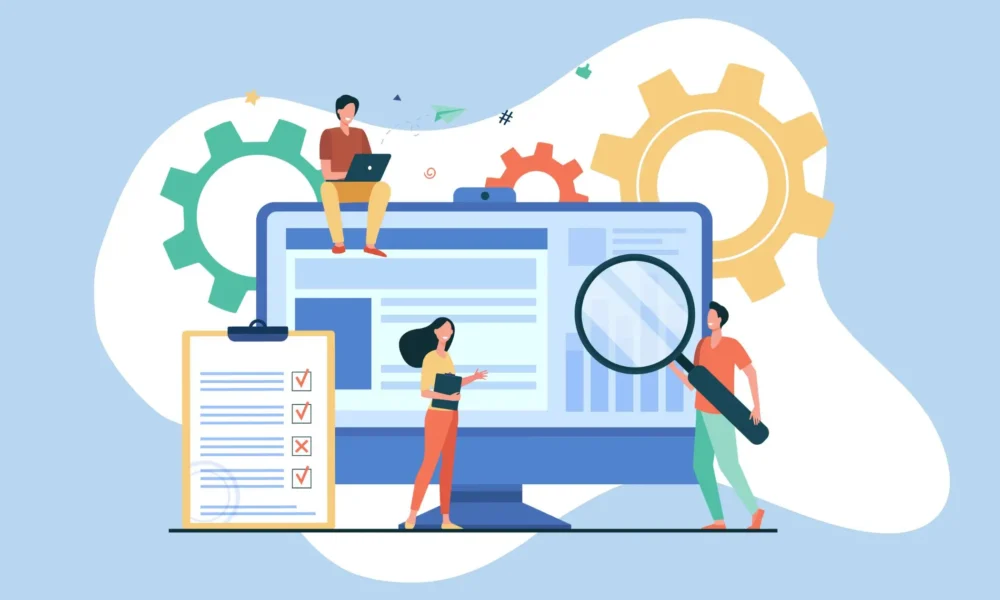How Applicant Tracking Systems are Using AI to Improve the Hiring Funnel

The world of recruitment has undergone dramatic changes over the past decade. What was once a manual, paper-heavy process has evolved into a technology-driven ecosystem where speed, precision, and scalability define success. Companies now operate in highly dynamic environments where securing top talent requires not only efficiency but also intelligence. This shift has positioned artificial intelligence (AI) as a cornerstone of modern hiring practices.
Among the most significant innovations reshaping recruitment is the integration of AI into applicant tracking systems. The applicant tracking system AI framework is not just automating workflows—it is fundamentally redefining how candidates move through the hiring funnel, making the process more accurate, efficient, and engaging for all stakeholders.
Understanding the Hiring Funnel in Modern Recruitment
The hiring funnel refers to the structured stages through which candidates pass during the recruitment process. Traditionally, it consists of:
- Sourcing and attraction– Identifying and attracting candidates.
- Screening and evaluation– Reviewing resumes, applications, and qualifications.
- Interviewing– Assessing candidates through structured interviews.
- Selection– Deciding on the most suitable candidate.
- Onboarding– Integrating new hires into the organization.
Each stage requires careful execution to avoid bottlenecks, delays, or missed opportunities. However, manual approaches often create inefficiencies, making it difficult to maintain both quality and speed. With AI embedded in applicant tracking systems, every stage of the funnel becomes more intelligent and streamlined.
What Role Does an Applicant Tracking System Play?
An applicant tracking system (ATS) is the backbone of recruitment technology. It centralizes candidate data, manages job postings, and automates administrative tasks. Traditionally, ATS platforms were primarily used for storing applications and tracking candidate progress.
But with AI integration, the role of these systems has expanded dramatically. Modern systems are now capable of analyzing massive datasets, predicting outcomes, personalizing communication, and even making intelligent recommendations. By merging traditional ATS functions with AI capabilities, organizations are empowered to build a hiring funnel that is faster, smarter, and more aligned with business goals.
The Rise of AI in Applicant Tracking Systems
The adoption of AI in applicant tracking systems reflects a broader trend in HR technology. Recruiters are no longer satisfied with tools that only manage processes—they need systems that actively enhance outcomes. AI delivers exactly that by:
- Learning from historical hiring data.
- Identifying hidden talent through advanced search.
- Reducing human bias in screening.
- Automating repetitive tasks at scale.
- Offering predictive insights to inform decisions.
This transformation enables applicant tracking systems to evolve from administrative support tools into strategic enablers of workforce growth.
Key Ways AI is Improving the Hiring Funnel
Automating Resume Screening and Candidate Shortlisting
Screening resumes manually is one of the most time-consuming tasks for recruiters. AI enables applicant tracking systems to scan thousands of resumes within seconds, identifying the most relevant candidates based on skills, experience, and role requirements.
This automation not only saves time but also ensures that high-potential candidates are not overlooked, giving recruiters a focused pool of qualified applicants to evaluate further.
Enhancing Candidate Matching with Intelligent Algorithms
A critical challenge in recruitment is ensuring the right candidate is matched with the right role. Applicant tracking system AI uses intelligent algorithms to analyze both job descriptions and candidate profiles. It evaluates compatibility across multiple dimensions—skills, experience, education, and career trajectory.
This results in more accurate matches and reduces the likelihood of mismatches that can lead to early attrition or poor performance.
Streamlining Communication with AI-Powered Chatbots
Communication gaps are a frequent cause of candidate dissatisfaction. AI-powered chatbots integrated into applicant tracking systems provide real-time responses to candidate queries, schedule updates, and application statuses.
These chatbots operate around the clock, ensuring candidates feel supported and informed throughout their journey in the hiring funnel.
Personalizing Candidate Outreach and Engagement
Generic emails and impersonal messages can leave candidates disengaged. AI enables personalization by tailoring communication based on a candidate’s profile, interests, and career aspirations.
Whether it’s recommending relevant roles or crafting individualized follow-up messages, this personalization improves engagement and makes candidates feel valued.
Improving Interview Scheduling and Coordination
Interview scheduling often involves multiple stakeholders and conflicting calendars. Applicant tracking system AI automates this process by analyzing availability and sending smart scheduling suggestions.
This reduces delays, prevents miscommunication, and ensures smoother transitions between stages in the hiring funnel.
Reducing Bias and Supporting Diversity Initiatives
Bias in recruitment can unintentionally exclude talented candidates. AI helps minimize this by focusing exclusively on merit-based criteria. It standardizes evaluations, ensuring decisions are based on objective qualifications rather than subjective preferences.
As a result, organizations benefit from more diverse and inclusive hiring outcomes.
Delivering Predictive Analytics for Better Hiring Decisions
AI doesn’t just streamline processes—it also predicts outcomes. Applicant tracking systems use predictive analytics to assess the likelihood of candidate success, long-term retention, and performance potential.
This data-driven insight equips recruiters with the foresight to make better decisions and align hiring strategies with business needs.
Unlocking Passive Talent Through AI Discovery
Many skilled professionals are not actively applying for jobs but may still be open to opportunities. AI tools analyze data across professional platforms, social networks, and digital footprints to identify passive talent.
By reaching these individuals early, organizations expand their talent pipelines with candidates who may otherwise remain invisible.
The Strategic Advantages of Using an Applicant Tracking System AI
Faster Time-to-Hire in Competitive Markets
Speed is often the deciding factor in talent acquisition. AI accelerates every stage of the funnel, enabling recruiters to secure top talent before others do. Faster hiring directly impacts organizational agility and performance.
Optimizing Recruiter Efficiency and HR Resources
By automating repetitive tasks, AI allows recruiters to dedicate more time to strategic initiatives like candidate engagement and workforce planning. This optimization enhances recruiter efficiency and reduces the overall cost of hiring.
Strengthening Employer Brand with AI-Driven Processes
A seamless, intelligent hiring funnel reflects positively on an organization’s employer brand. Candidates who experience transparent communication and efficient processes are more likely to view the company as innovative and attractive.
Providing a Better Candidate Experience Throughout the Funnel
The candidate journey is central to successful hiring. AI ensures candidates receive timely updates, personalized messages, and a smooth process from application to onboarding. This positive experience fosters trust and long-term engagement.
Real-World Applications of AI in the Hiring Funnel
AI-Powered Candidate Rediscovery from Databases
Many organizations have vast candidate databases from past applications. AI rediscovery tools scan these archives, identifying candidates who are suitable for new roles. This maximizes existing resources and reduces time spent on external sourcing.
Intelligent Skills-Based Job Matching
Instead of relying solely on job titles or keywords, AI matches candidates based on specific skill sets. This approach recognizes transferable skills and helps organizations identify candidates with high potential even if their backgrounds don’t fit traditional molds.
AI-Driven Workforce Planning and Forecasting
Applicant tracking system AI extends beyond immediate hiring needs. It predicts future workforce requirements by analyzing trends in talent demand, attrition rates, and industry shifts. This foresight enables proactive recruitment strategies.
Challenges and Considerations in AI-Powered Hiring
Balancing Automation with Human Judgment
While AI provides valuable insights, human recruiters remain essential for assessing cultural fit, motivation, and soft skills. The best results come from balancing automation with human expertise.
Addressing Data Privacy and Ethical AI Use
Recruitment involves handling sensitive personal data. Organizations must ensure their AI systems comply with privacy regulations and operate ethically. Transparency in AI processes builds trust with candidates and safeguards reputational integrity.
The Future of Applicant Tracking System AI
Trends Reshaping AI in Recruitment
AI is advancing rapidly with innovations like natural language processing for interviews, sentiment analysis in communication, and predictive retention modeling. These trends promise even greater accuracy and personalization in the hiring funnel.
Preparing Organizations for the Next Decade of Talent Acquisition
As talent landscapes evolve, organizations must invest in continuous adaptation. Training HR professionals to leverage AI, updating recruitment strategies, and embracing data-driven approaches will define the future of effective hiring.
Conclusion: Why AI-Enhanced Applicant Tracking Systems Are the Future of Hiring
The integration of AI into applicant tracking systems has redefined how organizations attract, evaluate, and hire talent. From automating resume screening to predicting long-term success, AI is transforming every stage of the hiring funnel.
By implementing an applicant tracking system AI, companies achieve faster, fairer, and more insightful recruitment outcomes. Beyond efficiency, AI empowers recruiters to build stronger candidate relationships, enhance diversity, and prepare for future workforce needs.
In today’s competitive environment, embracing AI-enhanced hiring is no longer optional—it is essential for building resilient, innovative, and future-ready organizations.

Source: How Applicant Tracking Systems are Using AI to Improve the Hiring Funnel




